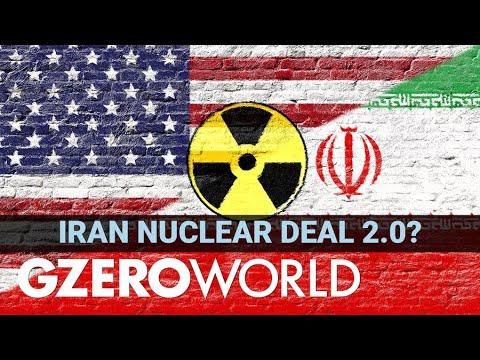
Since taking office, the Biden administration has worked hard for the US to return to the 2015 Iran nuclear deal, which Donald Trump walked away from in 2018.
Now, reaching an agreement is more urgent than ever because the Iranians are closer to getting the bomb than they've ever been. But Russia's war in Ukraine has complicated things, and some fear that even if a deal happens, the US may withdraw again with a Republican president in 2025.
On this episode of GZERO World, Ian Bremmer speaks to Ali Vaez, Iran project director at the International Crisis Group, who says the odds of success in the short term are about 50/50. Still, he thinks the stakes have become too big to fail for both Iran, crippled by sanctions, and for the US — Biden will pay a political price if the Iranians go nuclear on his watch.
Vaez also digs into Israel's strategic interest in a deal the Israelis have long opposed, and Russia's role in the negotiations with Iran.
More on the war in Ukraine: can cold-calling ordinary Russians to talk about the invasion change their hearts and minds? We talk to an Ireland-based Ukrainian in charge of a project doing just that.
- Iran nuclear deal now a toss-up, says International Crisis Group ... ›
- Can the nuclear deal with Iran still be salvaged? - GZERO Media ›
- The pros and cons of a nuclear program for Iran - GZERO Media ›
- The US can’t let Iran get any closer to nuclear weapons, says Iran expert Ali Vaez - GZERO Media ›
- The Iran nuclear deal - GZERO Media ›
- Trump tariff is starting a US-China trade war - GZERO Media ›
- Iran getting the bomb? Not as close as you might think - GZERO Media ›
- A new Iran nuclear deal is critical but not a sure thing, says Iran expert Ali Vaez - GZERO Media ›
- Why Israel now supports an Iran nuclear deal - GZERO Media ›